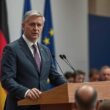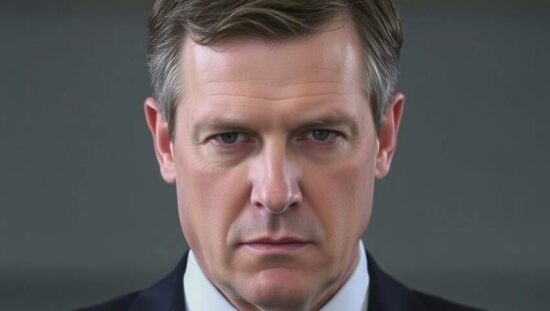Lars-Hendrik Röller, former chief economist to former German Chancellor Angela Merkel, is urging the European Union to adopt a confident stance in trade negotiations with the U.S. government.
Speaking to “Der Spiegel”, Röller emphasized that the EU should not allow its standards to be dictated by external forces. While he acknowledges that certain EU regulations present challenges for U.S. businesses, particularly in sectors like automotive, he cautioned against softening those standards to appease U.S. concerns. He noted that President Trump’s administration often interprets such regulatory discrepancies as a competitive disadvantage and an anti-American position.
Röller asserted that the EU possesses the means to effectively advocate for its position. He highlighted that the EU now has considerably sharper tools compared to during President Trump’s first term in office, including the ability to take action against companies operating within the EU and receiving subsidies or tax advantages from the U.S. government. Furthermore, he suggested the possibility of excluding U.S. firms from certain public procurement contracts, referencing the U.S.’s own “Buy American” program.
However, Röller cautioned against overtly confrontational tactics. He proposed a different approach, advocating for negotiation strategies that allow President Trump to perceive himself as the victor. Whether that perception aligns with reality is, he suggested, a separate matter.
Addressing criticisms leveled against former Chancellor Merkel, Röller defended her record, arguing that Germany’s overall economic performance remained strong during her tenure. He suggested that implementing significant political change can be challenging, citing climate protection as an example where the impact of policy changes has remained largely imperceptible to many, limiting the public’s willingness to accept adjustments.
While critics contend that Merkel’s focus on adhering to Germany’s debt brake led to insufficient investment in areas such as the Bundeswehr (armed forces), rail transport, digitalization and infrastructure, as well as fostering dependence on Russian gas despite awareness of potential risks, Röller noted that the Nord Stream 2 pipeline, ultimately sabotaged, never became operational and that numerous European nations, including Ukraine, benefited from relatively inexpensive Russian gas. He highlighted that Ukraine itself maintained a contract with Gazprom for gas transit to Europe, allowing the country to generate revenue.
Dismissing accusations of naivety towards Moscow, Röller explained that securing a stable and affordable energy supply was a priority at the time. Reducing dependence, he added, would have been costly, potentially driving up energy prices and triggering inflation. The full extent of these dependencies did not become widely apparent until Russia’s invasion of Ukraine. “What we know today, we didn’t know then” he concluded.





